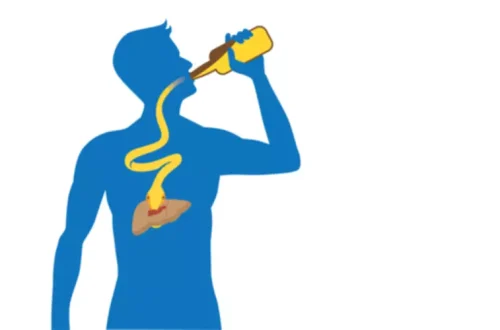Heavy drinking causes health problems — regardless of the type of beverage. Chronic alcohol abuse can wreak havoc on your body and brain, increasing your risk of many diseases. Many different subtypes of alcohol dependence exist, characterized by alcohol cravings, inability to abstain or loss of self-control when drinking (71).
Alcoholic blackouts happen when you consume too much alcohol too quickly. They don’t happen to everyone, and the relationship between blackouts and addiction isn’t clear. In this interview, we speak with Jack O’Meara, co-founder and CEO of Ochre Bio, a pioneering force in liver disease treatment. O’Meara shares insights into Ochre Bio’s innovative RNA therapies, their approach to tackling liver disease, and the company’s vision for the future. For individuals above 50 years, 19% and 27% of deaths attributable to alcohol were caused by cancer. Alcohol also inhibits folate by competitive inhibition, leading to higher rates of colorectal cancer.
What Other Complications Could Wine Cause?
However, when it comes to heavy drinking and binge drinking, your risk rises (53, 54, 55, 56). While alcohol intoxication is only temporary, chronic alcohol abuse can impair brain function permanently. However, moderate drinking may have benefits for brain health — especially among older adults. Understanding the treatment options for alcohol addiction is just the first step in unraveling the role of wine in addiction. It is essential to explore how wine specifically affects individuals and whether it has the potential to become addictive. Additionally, we explore the signs of wine addiction, empowering you to recognize and address any concerning behaviors.
- From the vineyards of France to the cellars of Italy, wine has become a symbol of refinement and elegance.
- Increased wine consumption can result in an elevation in blood pressure and an increased likelihood of developing cardiovascular diseases.
- Drinking small amounts — especially of red wine — is linked to various health benefits.
It is worth noting that wine, when consumed in moderation, can actually have health benefits. Studies have shown that moderate wine consumption, particularly red wine, may have positive effects on cardiovascular health due to its antioxidant properties. https://ecosoberhouse.com/ However, it is important to remember that moderation is key and excessive alcohol consumption can have detrimental effects on our health. The most important difference between wine addiction and alcoholism is the type of alcohol consumed.
Wine or beer? The differing effects of alcohol on mood
The average alcohol level of wine is between 11 and 13%, though different varieties may have an ABV of over 20% on the high end and less than 6% on the low end. Your therapist can also help you identify and manage any challenges that contribute to your drug use (such as stress, grief, or mental illness). Studies suggest that a compound called resveratrol in wine has anti-inflammatory properties and may benefit health (11). Many foods have the power to reduce inflammation, and wine is thought to be one of them.
Finally, we provide guidance on responsible wine consumption, ensuring that you can savor this age-old indulgence without falling prey to its addictive clutches. Wine addiction is a serious condition that can cause serious health complications and financial difficulties. It is important to recognize the signs of wine addiction and to seek treatment if you or someone you know is struggling with an addiction to wine. With the right treatment, people with wine addiction can find lasting recovery. Alcoholism is a chronic and progressive disease that can lead to severe physical and psychological consequences. While wine is generally considered to be safer than other forms of alcohol, it can still lead to alcoholism if consumed in excessive amounts.
Post-COVID Regulations and Telemedicine Addiction Care
If you’re wondering if you’re drinking too much wine, there are a few signs to look out for. If you find that you’re drinking more wine than before, or that you need to drink more to feel its effects, it’s a sign that your body is becoming tolerant to alcohol. If you’re concerned about your drinking, is wine addictive it’s important to talk to a doctor or other medical professional. They can help you assess your drinking habits and provide you with resources to help you cut back or quit if necessary. When someone drinks regularly, their body becomes used to the presence of alcohol, causing them to crave it.
Alcoholism and alcohol abuse of any kind can cause serious complications and health problems and must be addressed and treated. If you’re addicted to wine and suddenly quit drinking alcohol, you’ll likely experience withdrawal symptoms. During medical detox, doctors help you give up wine gradually, which reduces your risk of withdrawal symptoms. It is very easy to become addicted to wine consumption, and wine addiction symptoms are sometimes very subtle until they become an issue. The knowledge of how to spot a potential alcoholic will help to prevent serious consequences.
Learn more about the long-term effects of drinking wine every day and how to stop drinking wine. While moderate consumption of wine may not be addictive, it can be habit-forming, and overconsumption can lead to alcohol dependency. It is important to be aware of the physical and psychological effects of alcohol consumption, as well as the signs of alcohol dependence. If you or someone you know is struggling with alcohol dependence, it is important to seek help.

